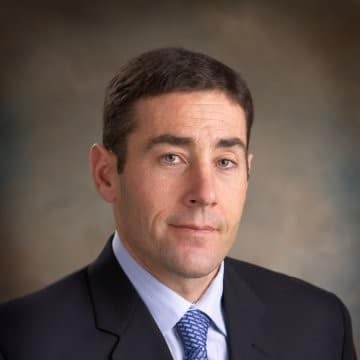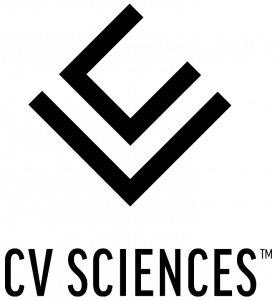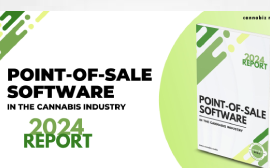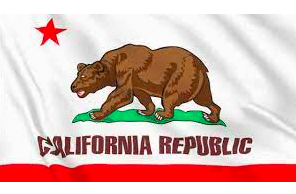This week we talk to Duffy MacKay, ND Senior Vice President, Scientific & Regulatory Affairs CV Sciences, Makers of PlusCBD
Dr. MacKay has over 20 years of experience in nutrition research, dietary supplements, health sciences and regulatory affairs after spending a decade at the Council for Responsible Nutrition (CRN), where he served as Senior Vice President of Scientific and Regulatory Affairs.
MacKay’s responsibilities at CRN included providing scientific expertise in nutrition, pharmacology, pharmacognosy, toxicology, for evaluating proposed government and industry actions; building effective rapport with scientific communities; establishing working relationships with regulators through engagement on dietary supplement and functional food regulatory matters; and educating regulators, legislators, and Attorney Generals regarding industry self-regulatory and compliance initiatives.
Duffy thankyou for your valuable time and taking time to speak with Cannabis Law Report
First up, for our readers who might not be aware, what is AB 45 ?……Who has drawn up the legislation and what are its basic aims?
AB 45 is key California legislation, passed in early September 2021, that makes a clear legal path for the retail sale of hemp- derived CBD dietary supplements, foods, and cosmetics in the state of California. Rep. Cecilia Aguiar-Curry sponsored the bill, which was strongly supported by the efforts of the U.S. Hemp Roundtable, California Hemp Council, and other California stakeholders.
The new law sets manufacturing, testing, and labeling standards for products that include CBD as an ingredient. With clear regulations for everyone involved in the CBD product lifecycle, California consumers will no longer face uncertainty about quality or safety when looking for CBD products at mainstream retail stores.
We see CV Sciences is a U.S. Hemp Roundtable member and keen to see the bill passed…why?
CV Sciences is headquartered in San Diego, CA. As pioneers in the CBD industry and manufacturers of hemp-derived CBD products under our flagship PlusCBD brand, we are committed to ensuring safe, high quality CBD products are accessible to informed consumers.
Due to FDA inaction, regulations are well behind consumer demand. At present, major retailers like Kroger and Sprouts only carry topical CBD products.
With the passage of AB 45, California retailers that have been reluctant to carry ingestible CBD products are expected to open-up their shelves to ingestible CBD, increasing consumer access and product availability.
We would love to dig into some of the details of the provisions with you.
Allowing hemp to be used in F&B and supplements.
What are the provisions for labelling and packaging?
The labeling and packaging regulations defer heavily to federal or existing state guidelines for foods and dietary supplements.
This reflects efforts to reduce burden and improve consumer communication by harmonizing labeling and packaging requirements.
Unfortunately, there are some label requirements that are unique to California and will further complicated the patchwork of state regulations that CBD companies must attempt to comply with.
Will these products be sold just in CA or out of state, too?
The California requirements are in line with most other state requirements, so products made for California can cross many state lines smoothly.
There are some states outside of California with their own unique requirements, like product registration, leaving CBD marketers to navigate states on a case-by case basis.
This underscores the importance of federal regulation of hemp-derived CBD products.
Are we talking just about processed and factory produced products, or also food in terms of the restaurant trade and say supermarket in-house products?
The law is structured for products made under specific Good Manufacturing Practices and labeled with a nutrition or Supplements Facts panel.
The manufacturing and testing requirements are too burdensome for a restaurant or smoothie shop.
Same question about cosmetics. Do they have to be processed and factory produced, or can they be made in- house or by hand?
The manufacturing and testing requirements for cosmetics are more attainable than for foods and supplements and can be achieved by small companies.
Regarding hemp farmers and businesses and testing. How much detail is in the bill as this part of the puzzle is still work in play with regard to THC-based cannabis products?
States are only beginning to crack that particular nut for the first time in this last calendar year after much heartache and misstarts.
The law outlines testing requirements for cannabinoids and to verify limits of environmental contaminants. These requirements are in line with requirements in other states.
Regarding out of state products, are we saying that if products from other states don’t meet CA standards those producers will be liable for prosecution in CA. How and who will enforce this?
The California Department of Public Health is responsible for enforcement against any product that is not in compliance with this new law.
Violation of the law would be found during an inspection of a manufacturer, retailer, or distributor.
Products that are not compliant are considered adulterated and not legal to sell until they are made compliant with the law.
We agree with regard to Isomers — again very difficult to for both legislate and enforce though, thoughts?
The law prohibits the sale of delta-8 or delta-10 THC. Retailers will see this as a major deterrent and avoid selling these ingredients.
However, there will always be bad actors who specialize in illegal ingredients, and it will be hard for under-resourced law enforcement agencies to prioritize regulating these ingredients.
Since delta-9 THC is legal and widely available in California, delta-8 and delta-10 are not likely to get much traction.
Do you think AB 45 will be a world leader in this type of hemp legislation?
How do you think it shapes up against other states and here we are thinking of best practice in places like OR & WA?
AB 45 is good news for hemp-derived CBD sales in California, but we have a long way to go before we start linking what is happening in California to the international market. Oregon and Washington have established markets for the recreational cannabis market, but the hemp-derived CBD laws are not ideal in those states.
What is really needed is uniform national regulations, so companies do not have to waste extensive resources to stay compliant with different requirements by state.
Do you think AB 45 lays the ground for any future Federal legislation?
AB 45 is a watershed moment for the advancement of the CBD industry, but the groundwork for federal regulations have been in place for years prior to this key California legislation. What is needed is the political willpower of Congress or FDA to commit to getting things done.
Do you see how it might be possible to create an international market for CA Hemp products and thus just become part of the wider primary ag industry in the state?
There is an opportunity for hemp to be grown in California and exported as an agricultural commodity. However, there is no infrastructure in the U.S. to make consumer goods like hemp building material, so this is not a viable market for farmers.
Furthermore, most national chains do not carry ingestible CBD because of the lack of federal FDA regulation of hemp-derived CBD as a dietary supplement or food.
This is a major reason that the CBD market has not reached its potential and there is currently an excess of hemp on the supply side.
20210AB45_91





















